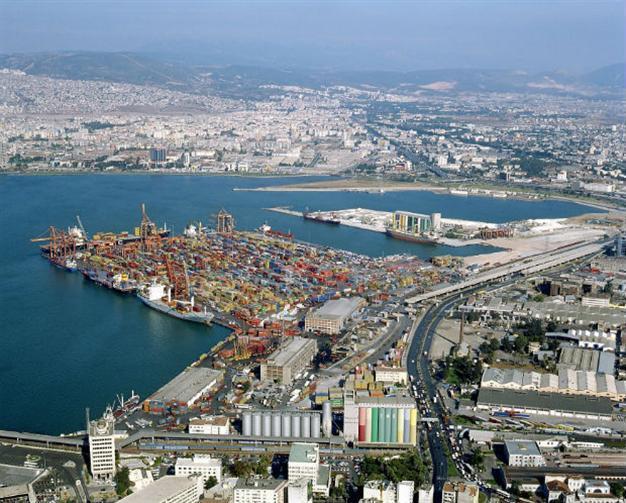Turkey’s foreign trade deficit drops 42.5 percent in October: Agency
ANKARA

DHA photo
Turkey’s foreign trade deficit declined by 42.5 percent year-on-year in October due to a continuing decline in the country’s imports, the Turkish Statistical Institute (TÜİK) stated on Nov. 30.
The foreign trade gap dropped from $6.3 billion to $3.6 billion in October, according to provisional data produced jointly by TÜİK and the Customs and Trade Ministry.
Exports were $13.3 billion with a 3.1 percent increase compared to October 2014, while imports were $16.9 billion with an 11.9 percent decrease, according to the data.
Turkey’s exports in the first 10 months of 2015 fell by 8.2 percent to $120.5 billion, from $131.3 billion in the same period of last year, while imports saw a 13 percent decline in the same period from $199 billion to $173.23 billion, according to the TÜİK data.
The drop in the value of Turkey’s exports was due to the decrease of around 17.2 percent in euro-dollar parity in the first 10 months of the year, according to data from the Exporters’ Assembly of Turkey (TİM).
In a written statement on Nov. 1, TİM President Mehmet Büyükekşi called on Turkey’s new government to work on boosting innovation and value-added production and exports to revive the economy, adding that a special focus is needed to increase exports to its main market, the EU.
Compared to October last year, exports to the 28 members of the EU increased by 10.7 percent, from $5.7 million to $6.3 billion. The proportion of EU countries in Turkey’s overall exports was 47.3 percent in October 2015, up from 44.1 percent in October 2014.
In October 2015, the main partner country for Turkey’s exports was Germany with $1.3 billion, followed by the U.K. ($986 million), Iraq ($870 million) and Italy ($707 million).
In October 2015, the top country for Turkey’s imports was China with $2.3 billion, followed by Germany ($1.8 billion), Russia ($1.5 billion dollars) and Italy ($925 million).
